By Tevfik Kadan
Recently, the US Senate Committee on Foreign Relations organized a hearing titled “US Policy on Turkey”. Issues such as the S-400 defense systems purchased by Turkey from Russia, the Turkish policy on Syria, Turkish actions in the Eastern Mediterranean, the reopening of the Cypriot town of Maras (Varosha) and the human rights report of Turkey were discussed during the hearing. The American senators have evaluated the relations with Turkey, while directing questions towards the US Undersecretary of State for Political Affairs, Victoria Nuland. In his opening remarks, Committee President Robert Menendez said that Turkey’s purchase of the S-400 systems poses a threat to NATO and American allies and added the US administration had not given a robust answer to Turkey’s actions. Menendez announced that he would not support lifting the CAATSA sanctions in any way as long as Turkey keeps its S-400s.
Some other senators who also spoke during the hearing, said they find Turkey’s actions in the Eastern Mediterranean quite provocative, that the maritime agreement with Libya was against the interests of the United States, Greece and Cyprus, that whatever necessary should be done for the release of American personnel in Turkey, that the Ankara administration was undermining the democratic institutions in the country, that the university professors were heavily censored and that the journalists were largely being detained.
We have spoken with the President of TURK-DEGS (Turkish Maritime and Global Strategies Center) Former Vice Admiral Cihat Yaycı about the hearing that took place at the US Senate, where anti-Turkish sentiment has reached its peak. Admiral Yaycı has said that “this was the final straw” and explained the great danger facing Turkey to United World International.
‘An out-of-rationality approach’
Some harsh criticism towards Turkey was expressed during the hearing of the US Senate. How do you assess these reactions and the American approach to these problems?
During the hearing titled ‘US Policy on Turkey’, some quite serious pro-Greek statements and demands were brought up. Some stated during the hearing, that the maritime treaty with Libya is against the interests of the United States, Greece and Southern Cyprus, posing a threat to NATO as a whole. First of all, it is quite an out-of-rationality approach for the United States to set up its domestic and NATO-related policies solely on Greece. Just as the total firepower of Greece and Southern Cyprus combined does not make up the firepower of only Turkey, the Turkish Army is also the force that coordinates and conducts the NATO missions in Syria, Afghanistan and dozens of other regions across the world. This anti-Turkish and pro-Greek approach of the US severely undermines NATO’s elemental functioning and coordination. On the other hand, Turkish presence in Libya also means a NATO presence in Libya, but our allies are unable to see the reality on the field and the significant contributions Turkey has done, since they have arranged themselves accordingly with Greece.
The hearing focused specifically on the S-400 systems that Turkey purchased from Russia. The Biden administration has been strongly advised to take even further countermeasures. How do you evaluate these concerns raised during the hearing?
All the concerns and pressures regarding Turkey’s acquisition of the S-400 defense systems are based on nothing but hollow arguments. We have seen this even clearer, especially with the anti-Turkish rhetoric and monologue by Robert Menendez, president of the US Committee on Foreign Relations. Accepting Menendez’s rhetoric and his demands is definitely impossible both in terms of our national interests and in terms of the international law.
All sovereign states on the planet have the right to protect their own national security and borders against external security threats. And Turkey takes the necessary steps and efforts to install the necessary equipment, accordingly to these reasons and owned rights.
In this respect, the Republic of Turkey, located next to a ring of fire along its eastern and southern borders, has the aim and responsibility to protect its current national borders and the security of its people against terrorist groups and some rogue states that were created as a result of an environment of a civil war, anarchy and terrorism, emerging next to Turkey’s borders.
Many radical terrorist organizations that emerged during the Syrian Civil War and especially the ISIS have caused a great harm to our citizens throughout the provinces bordering Syria. During the time period when the war had intensified and shifted closer to the Turkish border, many of our citizens in the border provinces of Kilis and Hatay were killed or injured by rockets fired by Syria, which also caused extensive property damage. In this respect, the war in Syria has revealed that Turkey had a huge weaknesses in the protection of its airspace, and that necessary measures must be taken immediately on the issue.
The buildup of the terror organization PKK in Northern Iraq and its foreign-backed arms stockpile against Turkey, including drones and missiles, also oblige Turkey to acquire some type of a missile defense system.
On the other hand lies to the West of Turkey Greece, a country that sees Turkey as an enemy and a threat even though being a NATO ally, purchasing fighters, helicopters and attack missiles. Athens at the same time is arming its islands, though these officially have a non-military status concerning offensive weapons.
In the east, there is Armenia that never hides its hostility towards Turkey and openly describes the eastern territories of Turkey as part of Greater Armenia even in its constitution.
In a region like the Middle East, where civil wars and armed conflicts are intense, and where some aggressive neighbors surround us, Turkey’s pursue of an air defense and missile system is a vital element for its national security.
In the fight against the PKK…
While the United States opposes the purchase of S-400s, it refuses to sell its own Patriot systems…
Turkey is trying to install its air defense currently with the given F-16 jets, but this method is not sustainable for Turkey due to its cost efficiency. As a matter of fact, there is not a major power that secures its air defense by fighter jets today.
And our allies withdrew the Patriot missile systems that were deployed to Gaziantep, Kahramanmaras and Adana provinces, after Turkey carried out the operations Peace Spring and Olive Branch, and intensified the fight against PKK terrorism.
At this point, Ankara wanted to purchase its own Patriot systems in 2013 during the Obama administration, but the Obama administration strongly rejected Turkey’s request. Therefore, when Turkey did not get the results it wanted from the alternative systems in Europe, it had to buy the Russian-made S-400 systems, which were a counterpart to the Patriot systems. Consequent to the US pressures on Ankara for not to purchase the Russian systems, an agreement was signed between Turkey and Russia in 2017, and the missile systems were transferred to Turkey after June 2019.
Located on NATO’s southeastern flank and acting as a buffer between the EU and the Middle East, Turkey needs its high-altitude air defense system much more than any other NATO country. Turkey must have a long-range high-altitude defense system due to its geopolitical location and the dangers brought by this location, although it already produces some low and medium altitude air defense systems such as Hisar-A and Hisar-O all by its own.
The NATO members’ stubborn insistence not sell the systems to Turkey has pushed Ankara towards Russia automatically.
NATO members and especially the United States, have strongly opposed this purchase. There have been tough pressures and threats to discourage Turkey from purchasing, with the arguments that keeping a Russian-made system in the same inventory with the NATO systems would somehow damage NATO interests. However, Turkey is not the first NATO country to receive air defense systems from Russia and to actively use them combined with NATO weapons.
Double standards are being applied here
Which other NATO countries have the Russian air defense systems?
It is known that NATO members such as Slovakia, Bulgaria and Greece have similar systems. Moreover, Greece has also tested its systems during an exercise at the NATO bases in 2013, although no member state has ever criticized it. Again, Greece has modernized its S-300s stationed in Crete, almost to a level of S-400s, with the cooperation of Russian military personnel. Subsequently, there is information that American and Israeli F-35s had tried to determine the capabilities of the system by conducting some polygon trainings.
The intense pressures on Turkey are a clear indication that NATO is applying double standards for this situation. In addition to that, the US stepping up its response, imposing the CAATSA sanctions and completely suspending Turkey from the JSF F-35 program have greatly damaged the Turkish-American relations. Successfully contributing to the NATO operations and missions with its thousands of years old military traditions, Turkey is being subjected to CAATSA sanctions, which were supposed to be imposed on the adversaries of the United States. This steps clearly go against the spirit of the alliance. Despite the examples of Greece and Bulgaria, the Washington administration decision to sanction Turkey in this matter has caused a deep damage to the relations between the two “allied” states.
Syria and Libya are the actual reasons behind all this
Why do you think that the United States is targeting Turkey and ignoring the other NATO members?
The purchase of S-400 air defense systems from Russia is regarded as the main reason for the sanctions, but it quite possible to say that Turkey’s steps in both Syria and Libya despite the United States involvement, had an impact when deciding to apply these sanctions. The United States, which defines its relations with its allies from the point of view of “a superior and its subordinates” with the confidence of being a superpower, rather than from the point of view of “two sovereign states on equal grounds”, has always put pressure on its allies throughout recent history, and has always threatened to punish in case of a resistance. Thus, the US administration has again demonstrated its “threatening to punish” attitude, this time to Turkey.
Taking a step back will not bring anything back
So how should Turkey respond against this attitude of the United States?
It should be much more strongly emphasized that this attitude expressed by our Western allies is completely inacceptable and goes against the spirit of the alliance. Turkey must take a staunch stance as this is a necessity of being a sovereign nation. I can assure you that if Turkey backs down on the S-400s today, nothing will be brought back and nothing will be fixed. And the following demands will surely come with it:
– Withdraw your troops from Syria,
– Do not hinder the establishment of a terrorist so-called Kurdish state, or even support its establishment,
– Diplomatically recognize the so-called Kurdistan in Iraq,
– Declare first a Kurdish autonomous region, and then some other autonomous regions on your home territory,
– Add other languages and founding peoples as official languages to your Constitution,
– Add more official languages and founding ethnicities to your constitution,
– Then give the right to self-determination to the peoples who speak those languages and those founding members of the nation (which will completely revive the Treaty of Sevres),
– Pardon and release FETO and PKK members with an amnesty,
– Withdraw from your operations in Libya and the Eastern Mediterranean,
– Agree with Greece on increasing its territorial waters to 12 nautical miles in the Sea of Archipelago (Aegean Sea),
– Withdraw from Cyprus and let the TRNC to be annexed by the Greek Administration and let it become a territory of the EU,
– Let the Greek Orthodox Patriarchate in Istanbul to become a Vatican-like structure, and let Istanbul be administered by an international committee,
– Withdraw your support to Azerbaijan; give Armenia the lands from Eastern Anatolia and the Black Sea Region for the reparations of the so-called genocide…
In short, beginning of the end!
Do not go down this slippery slope!
Do you have anything to add about this issue?
Do not go down this slippery slope, for God’s sake! Let us actually care about this country for once. Let us not cause some centuries of irreversible losses, because of some minor problems of today!
God bless the Turkish Nation and the Turkish State! If the Republic of Turkey collapses, a vast geography will crumble down with it!
‘The target here is the Turkish sovereignty’
Today, Turkey is being subjected to CAATSA sanctions due to the recent relations established with Russia. Bans and restrictions were put up on our Defense Industry Directorate and our bureaucrats because of this. First of all, Turkey is an independent and a sovereign nation. It can establish contacts with any country, develop diplomatic ties or sign any treaties. As the attitude of the United States cannot be explained by the name “alliance”, it also reveals their true mentality towards Turkey. On the other hand, the main reason why our Directorate of Defense Industry is subject to the sanctions is that we have made our national air defenses fairly domestic and strong. Today, as a result of the intensive efforts put up by our Directorate of Defense Industry, Turkey has the one of the most serious and effective armed and unarmed drones arsenal in the world, and has achieved a technological revolution in the field of air defense because of this.
Both the sanctions against our Directorate of Defense Industry and the expression of Turkey as a threat on the S-400s issue, reveal the attitude put up by the United States against Turkey’s independence and development. The United States, which does not speak out against Greece, when it offered its ports to China and Russia happily, puts Turkey on a sanctions list for its relations with Russia! We are not a mandate territory. We can develop diplomatic, trade and political relations with any country we wish. If our allies in NATO leave us without a proper air defense system, we would create alternatives, as does any independent government, which is obliged to protect its territories and its citizens.
Our country should create alternatives not only in the field of air defense systems, but also in the fields of aircraft and aircraft carriers, and it should emerge even stronger from these kinds of sanctions and unipolar orders, by taking matters at its own hand.
This is nothing but bad intentions
Each country develops relations in line with its own interests, and creates alternatives for its own needs. For example, Saudi Arabia has some serious economic, military and political ties in the Middle East to the United States. However, Saudi Arabia is also negotiating with Russia on purchases of both the S-400 and SU-35 fighter jets. While aiming to nationalize its own defense industry by 2030, Saudi Arabia is preparing for the transfer of technology from Russia for the production of equipment such as the S-400s, Kornet-M anti-tank missiles, T-72 tank chassis.
Again, Qatar and India, which the United States perceives as close allies, are wishing to purchase the S-400 systems. Any country that wants to nationalize its own defense industry, enrich its inventory and create alternatives for unobtainable (!) needs can benefit from the alternative opportunities. While the United States does not impose any CAATSA sanctions on Saudi Arabia or India, it is nothing but some bad intentions for it to stand up and express Turkey as a threat.









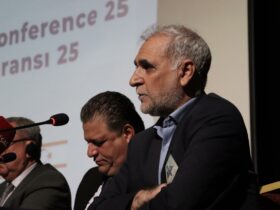
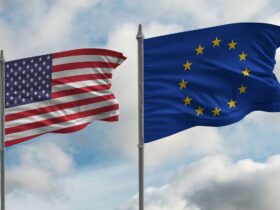


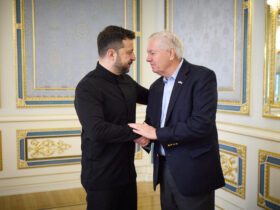
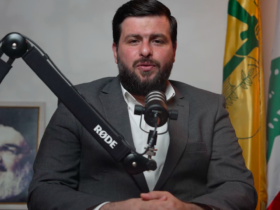
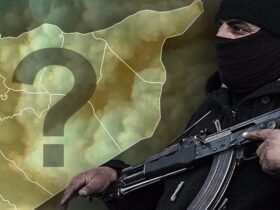

Leave a Reply